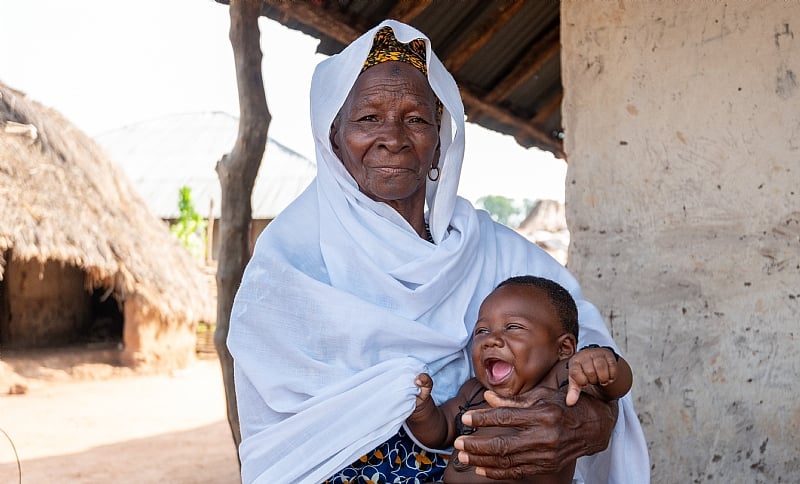In Gabú, Guinea-Bissau, a grandmother named N’beta hesitated. Her six-month-old grandson, Seco, was healthy, so why give him medicine? But community health workers Jamilia and Amadu gently explained that the medicine wasn’t for illness, but for protection. It was part of a seasonal malaria chemoprevention campaign designed to protect children during the worst malaria transmission months — the rainy season.
“Now I understand it’s to keep him safe,” N’beta said, watching Seco become one of 250,000 children protected in 2024 with a simple but life-saving dose.
Malaria remains a deadly threat across Africa, especially for children under five. But with support from the Global Fund to Fight AIDS, Tuberculosis and Malaria, the United Nations Development Programme (UNDP) and its partners are reaching the most vulnerable, particularly in hard-to-reach communities. In Chad, 9.4 million mosquito nets were distributed using a fully digitalized system in 2023, protecting 3.5 million households.
In Burundi, 1.3 million people were protected through indoor spraying in 2024.
In Guinea-Bissau, malaria prevalence dropped by more than half in just three years from 2020-2023.
But malaria is only one of the threats.
In South Sudan, tuberculosis (TB) continues to claim lives, often undetected.
“Not everyone can read and interpret an X-ray report,” said Dr. Ofere Ohide, a Radiologist at Torit State Hospital. “But with new AI-assisted X-ray machines, even clinics without power or specialists can now detect TB early,” he says of the digital x-ray machines provided through the Global Fund support.
These innovations, combined with decentralized care and improved case notification, helped 92% of people with TB receive treatment in 2023, contributing to a 75% drop in TB-related deaths in South Sudan since 2015. Similarly, close to 20,000 people got cured of TB out of about 23,000 TB cases registered in 2023 representing 85% treatment success rate.
And then there’s HIV – a virus that once devastated entire generations.
In Zimbabwe, where AIDS once slashed life expectancy to 45 years, progress has been hard-won. One young woman, Princess, 17, a survivor of sexual abuse, found strength through a Global Fund-supported comprehensive sexuality education programme delivered by UNDP and partners.
“I reclaimed my voice and will use it to ensure justice for survivors of abuse,” she said, now dreaming of becoming a lawyer.
In Angola, 22-year-old Ana Alexandre became a peer educator after joining sessions on sexual and reproductive health. “I am no longer ashamed to talk about sexuality,” she shared. “My little sister can come to me and ask things… I answer normally and clearly.”
Since 2003, UNDP and the Global Fund have worked hand-in-hand with governments, civil society, and communities to end HIV, TB, and malaria, even in the most fragile settings. In Africa, countries supported by UNDP and the Global Fund include Angola, Burundi, Chad, Republic of the Congo, Democratic Republic of the Congo (DRC), Guinea-Bissau, Zimbabwe, São Tomé and Príncipe, Mozambique, and South Sudan.
In 2023 alone:
1.5 million people received HIV treatment 44,000 people were treated for TB 13.1 million mosquito nets were distributed to prevent malaria
To all the partners of the Global Fund including the governments of Germany, France, Portugal, Japan, the UK, Canada, the EU, Norway, Sweden, and the Netherlands – thank you. Your support is not just saving lives. It is restoring dignity, hope, and the promise of a healthier, more prosperous, and secure future.
But the work is not done.
To protect every child like Seco, to empower every girl like Princess, and to reach every community still at risk, we must keep going. Continued investment, including in the Global Fund’s Eighth Replenishment, is essential to ensure health for all and end HIV, TB and malaria by 2030.
BY Ms. Praise Nutakor
Partnerships and Communications Specialist, UNDP Regional Bureau for Africa
Email: [email protected]


